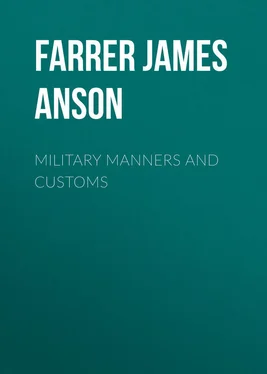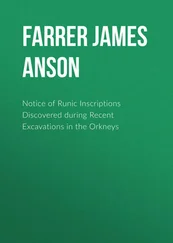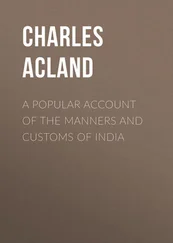James Farrer - Military Manners and Customs
Здесь есть возможность читать онлайн «James Farrer - Military Manners and Customs» — ознакомительный отрывок электронной книги совершенно бесплатно, а после прочтения отрывка купить полную версию. В некоторых случаях можно слушать аудио, скачать через торрент в формате fb2 и присутствует краткое содержание. Жанр: foreign_antique, foreign_prose, на английском языке. Описание произведения, (предисловие) а так же отзывы посетителей доступны на портале библиотеки ЛибКат.
- Название:Military Manners and Customs
- Автор:
- Жанр:
- Год:неизвестен
- ISBN:нет данных
- Рейтинг книги:5 / 5. Голосов: 1
-
Избранное:Добавить в избранное
- Отзывы:
-
Ваша оценка:
- 100
- 1
- 2
- 3
- 4
- 5
Military Manners and Customs: краткое содержание, описание и аннотация
Предлагаем к чтению аннотацию, описание, краткое содержание или предисловие (зависит от того, что написал сам автор книги «Military Manners and Customs»). Если вы не нашли необходимую информацию о книге — напишите в комментариях, мы постараемся отыскать её.
Military Manners and Customs — читать онлайн ознакомительный отрывок
Ниже представлен текст книги, разбитый по страницам. Система сохранения места последней прочитанной страницы, позволяет с удобством читать онлайн бесплатно книгу «Military Manners and Customs», без необходимости каждый раз заново искать на чём Вы остановились. Поставьте закладку, и сможете в любой момент перейти на страницу, на которой закончили чтение.
Интервал:
Закладка:
No historical microscope, indeed, will detect any difference between the Free Companies and the regular troops, since not only the latter merged into the former, but both were actuated by the sole pursuit of gain, and equally indifferent to ideas of honour or patriotism. The creed of both was summed up in the following regretful speech, attributed to Aymerigot Marcel, a great captain of the pillaging bands: ‘There is no pleasure in the world like that which men such as ourselves enjoyed. How happy were we when, riding out in search of adventures, we met a rich abbot, a merchant, or a string of mules, well laden with draperies, furs, or spices, from Montpellier, Beziers, and other places! All was our own, or ransomed according to our will. Every day we gained money, … we lived like kings, and when we went abroad the country trembled; everything was ours both in going and returning.’
In the days of chivalry, this desire of gain, however gotten, pervaded and vitiated all classes of men from the lowest to the highest. Charles IV. of France, when his sister Isabella, queen of Edward II., fled to him, promised to help her with gold and silver, but secretly, lest it should bring him into war; and then when messengers from England came with gold and silver and jewels for himself and his ministers, both he and his council became in a short time as cold to the cause of Isabella as they had been warm, the king even going so far as to forbid any of his subjects under pain of banishment to help his sister in her projected return. And again, when Edward III. was about to make war with France, was he not told that his allies were men who loved to gain wealth, and whom it was necessary to pay beforehand? And did he not find that a judicious distribution of florins was as effective in winning over to his interests a duke, a marquis, an archbishop, and the lords of Germany, as the poorer citizens of the towns of Flanders?
Money, therefore, or its equivalent, and not the title to the crown of France, was at the root of the wars waged abroad by the English under Edward III. The question of title simply served as pretext, covering the baser objects of the invasion. No historical fact is clearer, ignored though it has been in the popular histories of England, than that the unpopularity of his successor, Richard II., arose from his marriage with the daughter of the King of France, and from his desire for peace between the two kingdoms, of which the marriage was the proof and the security. When his wish for peace led to the formation of a war and a peace party among the English nobility, Froissart says: ‘The poorer knights and archers were of course for war, as their sole livelihood depended upon it. 60 60 iv. 27.
They had learnt idleness and looked to war as a means of support.’ In reference to the great peace conference held at Amiens in 1391, he observes: ‘Many persons will not readily believe what I am about to say, though it is strictly true, that the English are fonder of war than of peace. During the reign of Edward, of happy memory, and in the lifetime of his son the Prince of Wales, they made such grand conquests in France, and by their victories and ransoms of towns, castles, and men gained such wealth, that the poorest knights became rich; and those who were not gentlemen by birth, by gallantly hazarding themselves in these wars, were ennobled by their valour and worth. Those who came after them were desirous of following the same road… Even the Duke of Gloucester, son of King Edward, inclined to the opinion of the commons, as did many other knights and squires who were desirous of war to enable them to support their state.’ 61 61 iv. 36.
No other country, indeed, pleased these English brigand knights so well as France for the purpose of military plunder. Hence the English who returned from the expedition to Castile complained bitterly that in the large towns where they expected to find everything, there was nothing but wines, lard, and empty coffers; but that it was quite otherwise in France, where they had often found in the cities taken in war such wealth and riches as astonished them; it was in a war with France therefore that it behoved them to hazard their lives, for it was very profitable, not in a war with Castile or Portugal, where there was nothing but poverty and loss to be suffered. 62 62 iii. 109.
With this evidence from Froissart may be compared a passage from Philip de Commines, where he says, in speaking of Louis XI. towards the end of the following century: ‘Our master was well aware that the nobility, clergy, and commons of England are always ready to enter upon a war with France, not only on account of their old title to its crown, but by the desire of gain, for it pleased God to permit their predecessors to win several memorable battles in this kingdom, and to remain in possession of Normandy and Guienne for the space of 350 years, … during which time they carried over enormous booty into England. Not only in plunder which they had taken in the several towns, but in the richness and quality of their prisoners, who were most of them great princes and lords, and paid them vast ransoms for their liberty; so that every Englishman afterwards hoped to do the same thereby and return home laden with spoils.’ 63 63 Mémoires , vi. 1.
Such, then, were the antecedents of the evil custom of war which has descended to our own time; and we shall have taken the first step to its abolition when we have thus learnt to read its real descent and place in history, and to reject as pure hallucination the idea that in the warfare of the past any more than of the present there was anything noble or great or glorious. That brave deeds were often done and noble conduct sometimes displayed in it must not blind us to its other and darker features. It was a warfare in which not even women and children were safe from the sword or lance of the knight or soldier; nor sacred buildings exempt from their rage. It was a warfare in which the occasional mercy shown had a mercenary taint; in which the defeated were only spared for their ransom; and in which prisoners were constantly liable to torture, mutilation, and fetters. Above all, it was a warfare in which men fought more from a sordid greed of gain than from any love or attachment to their king or country, so that all sense of loyalty would speedily evaporate if a king like Richard II. chanced to wish to live peaceably with his neighbours.
It is not unimportant to have thus shown the warfare of chivalry in its true light. For it is the delusion with regard to it, which more than anything else keeps alive those romantic notions about war and warriors that are the most fatal hindrance to removing both from the face of the earth. We clearly drive militarism to its last defences, if we deprive it of every period and of almost every name on which it is wont to rely as entitling it to our admiration or esteem.
CHAPTER III.
NAVAL WARFARE
Una et ea vetus causa bellandi est profunda cupido imperii et divitiarum. – Sallust.
Robbery the first object of maritime warfare – The piratical origin of European navies – Merciless character of wars at sea – Fortunes made by privateering in England – Privateers commissioned by the State – Privateers defended by the publicists – Distinction between privateering and piracy – Failure of the State to regulate privateering – Privateering condemned by Lord Nelson – Privateering abolished by the Declaration of Paris in 1856 – Modern feeling against seizure of private property at sea – Naval warfare in days of wooden ships – Unlawful methods of maritime war – The Emperor Leo VI.’s ‘Treatise on Tactics’ – The use of fire-ships – Death the penalty for serving in fire-ships – Torpedoes originally regarded as ‘bad’ war – English and French doctrine of rights of neutrals – Enemy’s property under neutral flag secured by Treaty of Paris – Shortcomings of the Treaty of Paris with regard to: – (1) A definition of what is contraband; (2) The right of search of vessels under convoy; (3) The practice of embargoes; (4) The jus angariæ – The International Marine Code of the future.
Читать дальшеИнтервал:
Закладка:
Похожие книги на «Military Manners and Customs»
Представляем Вашему вниманию похожие книги на «Military Manners and Customs» списком для выбора. Мы отобрали схожую по названию и смыслу литературу в надежде предоставить читателям больше вариантов отыскать новые, интересные, ещё непрочитанные произведения.
Обсуждение, отзывы о книге «Military Manners and Customs» и просто собственные мнения читателей. Оставьте ваши комментарии, напишите, что Вы думаете о произведении, его смысле или главных героях. Укажите что конкретно понравилось, а что нет, и почему Вы так считаете.












